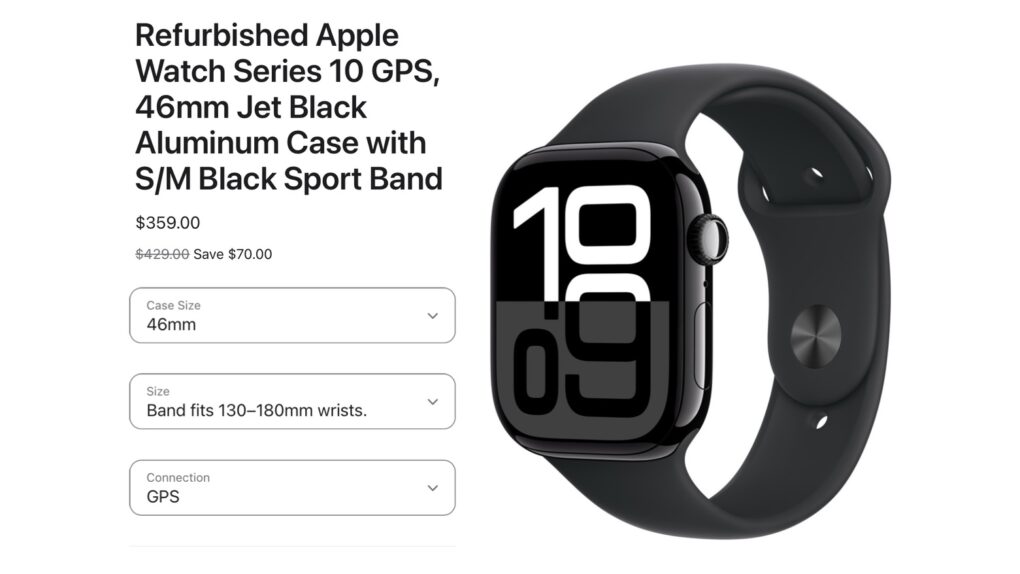Refurbished Apple Watch Series 10 units can be purchased directly from Apple starting Tuesday with savings up to $110.
The smartwatch launched only a few months ago, and buying a refurbished unit knocks as much as 15% off the price of a new one.
Apple Watch Series 10 reaches Apple refurbished store
Apple Watch Series 10 is the latest model, launching last autumn. As new as it is, there’s an easy and safe way to get a discount: buy one from Apple’s certified refurbished store. Prices are about 15% below the regular cost, but there’s a drawback: limited supply.
A refurb 46mm Series 10 sells for $359, which is $70 below the usual cost. The variant that adds built-in cellular access costs $639, a savings of $110 for going refurb.
But those who want a 42mm Series refurb model are out of luck — Apple has none in stock in its refurbished store. When it does, the model will sell for $339, down $60.
And the 46mm variants might sell out at any time, too. Check the Apple Certified Refurbished store to see what Apple Watch Series 10 versions are currently in stock.
Apple refurbs aren’t old junk
While some people hesitate at the idea of a used smartwatch, Apple refurbished products are a safe bet. The computer maker promises that every unit undergoes full functionality testing, and any necessary repairs are made. These often aren’t needed, though, as this is also the way the company gets rid of units that customers purchased and then brought back in the two-week return period, not because they were broken.
The units are cleaned and then repackaged in new boxes with appropriate manuals and cables.
There are many people who never buy new Apple products. They just wait until Apple refurbished units are available and pocket the 15% (or more) savings.
More about Apple Watch Series 10
Consider Apple Watch Series 10 both a way to keep constantly in touch as well as a fitness-oriented essential. Going way beyond measuring the wearer’s heart rate, the wearable can take an electrocardiogram, notify you if a loud environment might cause hearing damage, flag potential sleep apnea and provide ovulation estimates.
(Note: Apple disables the device’s blood oxygen sensor for U.S. customers due to an ongoing court case. There’s no word on when, or if, it will be re-enabled in newer models.)


